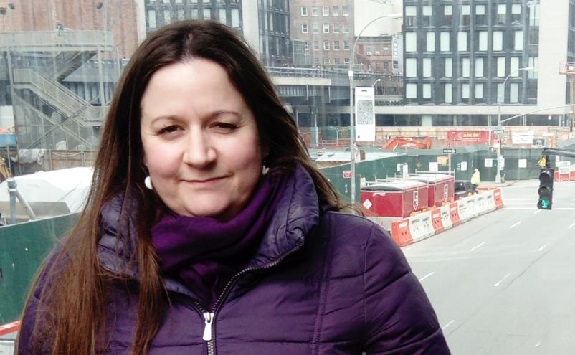Dr Ann Fitchett
Events and External Liaison Coordinator
I joined Newcastle as a research associate having completed my PhD at Nottingham and a post doctoral position at Durham University. I really enjoyed being a researcher but was not interested in the conventional research career path of pursuing a fellowship and then a tenured lectureship position so I started to think about alternative careers. This can be quite hard in a research environment surrounded by other researchers but once you start talking about alternative careers it's amazing how many people have a 'plan B' all worked out.

Finding a Plan B
Something that really helped me was the ‘Career Transitions’ programme run by Newcastle University career service. This was a really supportive environment that provided dedicated time and space to think about your career which sounds simple but is not something I'd ever done. The game changer for me was the realisation that having invested 10 years of my career at Newcastle University where I enjoyed the ethos and environment, I wanted to stay in the University, but do a different role.
This opened my eyes to a whole range of professional service careers in the University. I found quite a few colleagues who had transitioned from research and they were very generous with their time and offered opportunities to shadow them in their roles. This is where I began to get interested in how we engage audiences in our research, especially non-scientific ones, outside of the university.
Making that transition from researcher to professional services was challenging. If you have done some post-doc positions people often assume you are perhaps just looking for a stop-gap before the next research position comes up. I think people who transition straight after a PhD find it a bit easier. After half a dozen attempts I learnt how to emphasise my transferrable skills more and I did make the transition and I’ve been working in communications for 10 years now.
Transferrable skills
My time as a researcher has given me so many skills that have been useful in my communications roles. I can take in and process information or concepts quite quickly. As you might expect I am good at 'researching' or finding things out and combining various different sources and making them into something cohesive. Research taught me to be confident in my ideas and stick up for them. No one has all the answers and you are allowed to voice yours. There is no such thing as a stupid question. It also taught me the importance of decision making - weigh up the options, make a choice and be prepared to justify yourself.
Communicating our research
Having gone through the higher education and research environment pipeline, one of the biggest strengths I have is that I understand the pressures and language of research. This definitely helps me in my current role where I am part of the Data and Communications community within the Faculty of Medical Sciences. On a day to day basis I run internal and external events, oversee our internal Sharepoint pages and external website and offer advice on all internal and external communication channels. The best part of my job is finding out about the very interesting and sometimes life changing research that's going on in a lab just across the corridor and then communicating it to the public in lay terms. The challenge is that we are such a large and varied Faculty, there is so much to communicate.
